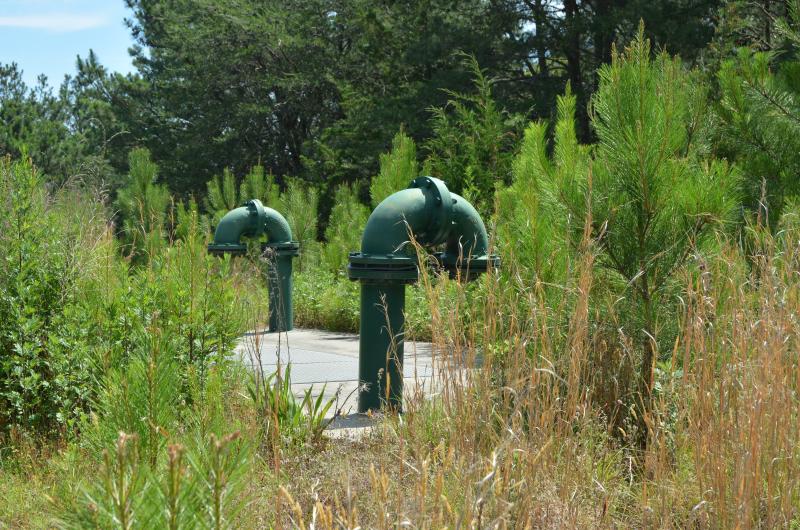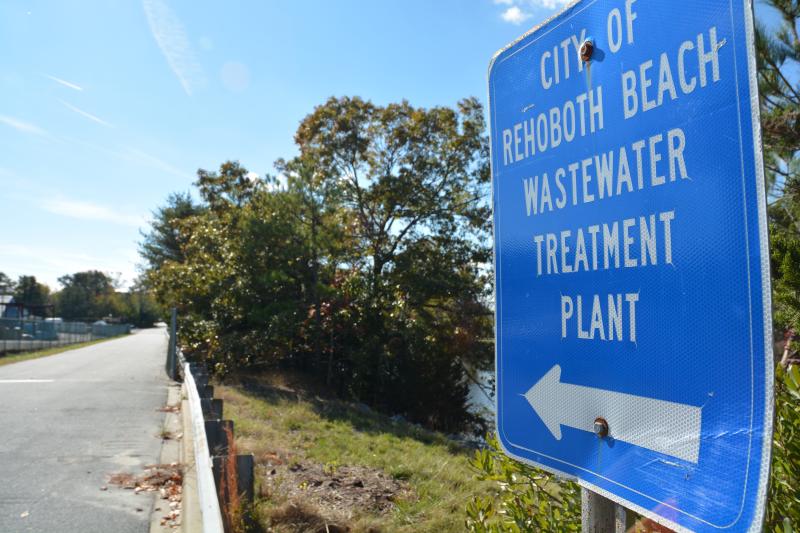Rehoboth willing to discuss sharing outfall with Lewes, county

For the third time in six years, Sussex County officials have approached Rehoboth Beach about using the excess capacity of the city-owned ocean outfall. However, this time the Lewes Board of Public Works has joined the discussion.
Rehoboth Public Works Director Henry Matlosz went over the recent history and brought forward the new proposal during a June 10 workshop.
In 2018, the county presented a proposal to take over the city’s wastewater treatment plant. The county argued it would be able to disperse operating and upgrade costs over a much larger group, which would reduce the financial burden on city residents. Despite possible savings, the majority of city residents and property owners did not want to lose control of the facility. Commissioners decided to not move forward with the offer.
The county came back again in 2021. This time the proposal was to purchase a portion of the outfall’s excess capacity, but commissioners were concerned about the county purchasing the capacity instead of leasing it and the level of nutrients in the county’s effluent. Commissioners agreed to continue discussing the proposal, but the county pulled out.
In the latest proposal, Matlosz said officials from Lewes BPW and the county have indicated they are willing to discuss a long-term lease of the excess capacity rather than an outright purchase. Also, the treatment of effluent would be equal to, or better, than the level of treatment required by the state.
There were no representatives from the county or Lewes BPW in attendance at the workshop, but Sussex County Council President Michael Vincent and Lewes Board of Public Works Board President Thomas Panetta sent a joint letter to city commissioners in advance of the meeting. The letter described the proposal as a regional partnership.
Essentially, the letter says the county and Lewes BPW have been working for years to address the aging wastewater treatment facility in Lewes. After much analysis, a consensus was reached that the best plan moving forward would be for the county to expand its Wolfe Neck Regional Wastewater Facility, located on a farm between Lewes and Rehoboth Beach, and then have Lewes BPW build a new plant on the farm.
Those plans hit a snag when an archaeological discovery was made on the Wolfe Neck property. This has made the site off-limits for any future land disturbance until studies are complete, which could take years.
The letter says the county and Lewes BPW looked for other alternatives, one of which was to build a new ocean outfall from the Wolfe Neck property that would extend into the ocean from the Gordons Pond part of Cape Henlopen State Park. From their perspective, it is unreasonable to build a second ocean outfall next to an existing ocean outfall.
“The hurdles surrounding the construction of a new ocean outfall are well known,” reads the letter. “For these reasons and others, we decided to approach the City of Rehoboth to discuss this potential partnership opportunity once again.”
Since the purpose of this discussion at the workshop was to gauge if there is a desire by city commissioners to move forward to a more formal proposal, there wasn’t much discussion on the topic.
Mayor Stan Mills said he was contacted in February about the third proposal. He said a short time later, he and other city officials met with county and BPW officials to make sure this proposal was substantially different from the ones before.
If it was the same as before, Mills said he was prepared to reject this proposal too. However, with the inclusion of Lewes BPW and other things, he determined the proposal was significantly different, he said.
Resident Tom Gaynor urged the commissioners not to engage with the county or Lewes. He said the beach is the golden goose and it should be protected at all costs, which can’t be done with waste from other areas.
Ultimately, commissioners agreed to move forward with bringing in representatives from the county and Lewes to discuss the proposal. A specific date was not set.
Ocean outfall to be inspected
City Manager Taylour Tedder announced during the city manager update that the ocean outfall would be undergoing its biannual inspection beginning next week. He said there will be divers working offshore from a boat.
“This work is extremely weather-dependent,” said Tedder.
An inspection in 2022 showed two of the diffusers at the end of the outfall were missing one bolt each, but otherwise the outfall pipe was intact and showed no signs of deterioration or misalignment. In addition to looking at the diffusers, which help dilute the concentration of the effluent, the report said all articulating concrete block mats are intact and in good condition, and there was no sign of erosion, scouring or displacement of armoring materials.



















































